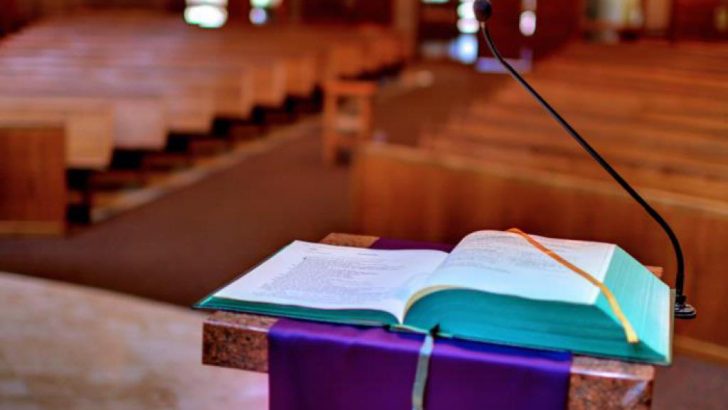People who read at Mass are not reading from a newspaper, they are “proclaiming the word of God” and they need training, Fr Danny Murphy from the National Centre of Liturgy in Maynooth has said.
Fr Murphy, told The Irish Catholic that parishes and dioceses “need to be facilitating getting people trained” who can then go back and in their turn train others.
He was speaking after Pope Francis called last week for good lectors in church. “We must look for good readers, not those who mutter and nothing is understood. They must be prepared and rehearse before the Mass in order to read well. And this creates a climate of receptive silence,” he said at Wednesday’s audience.
“The Word is real presence of Christ,” said Fr Murphy, Secretary of the Bishops’ Council for Liturgy. “When the person proclaims the word of God well, going slowly, knowing what they are doing, the effect is powerful. The reader hasn’t stood in the way but has enabled the Spirit to work through them.”
For that reason, he said, discernment was needed in selecting readers. It’s not a case of “anyone will do without putting [them] through formation.”.
Generosity
The Director of the Diocesan Liturgical Resource Centre in Dublin agreed: “Sometimes the pool of people who volunteer is small and it doesn’t seem right to turn down generosity, but going with that has to be some kind of training because some people think you can just stand up and read straightaway without looking at it and preparing it,” Fr Pat O’Donoghue told The Irish Catholic.
“You’d want your best people to proclaim the word of God,” he said, suggesting that parish priests or parish council members should use their “local wisdom in the parish” to select possible readers. Fr O’Donoghue advised Lectors (readers) to prepare their readings a week in advance, and to pray with the readings.
Both the Diocesan Liturgical Resource Centre in Dublin and the National Centre of Liturgy in Maynooth, will provide training for Lectors on request. The Dublin Liturgical Resource centre provides input on the meaning of scripture as well as coaching on the use of microphones and vocal technique.
Small staff
“There is a call out for [training] around the country,” said Fr Murphy from Maynooth, “but we are a small staff to get around the country, whereas [it would be better] if we have people who are trained [here] and let them go out.”
Fr Murphy stressed the need to read slowly. “In proclaiming from the ambo, we must be conscious of the space that sound has to go out to – the back wall – and come back and if it is [read]too quickly, the sounds will crash into each other.” Reading is more than a matter of elocution. Lectors need a “realisation that God is speaking through them, they are an instrument – and then they need a certain amount of techniques”.
He pointed out that in times of persecution the Church survived “where there were lay catechists who spoke the word and teased out the Bible”.
There is great emphasis on the Word in Protestant churches. By contrast, Catholic lectors tend to read more quickly.
“I think that might be part of the notion that can be around that mass is long so maybe readers feel they don’t want to make it longer,” commented Fr O’Donoghue, adding: “When you read slowly, you get the opportunity to pray the word as you go along as well as proclaim the word.”


 Susan Gately
Susan Gately
